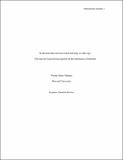| dc.contributor.author | Mendes, Wendy Berry | |
| dc.date.accessioned | 2010-06-14T17:18:47Z | |
| dc.date.issued | 2010 | |
| dc.identifier.citation | Mendes, Wendy Berry. Forthcoming. Weakened links between mind and body in older age: The case for maturational dualism in the experience of emotion. Emotion Review. | en_US |
| dc.identifier.issn | 1754-0739 | en_US |
| dc.identifier.uri | http://nrs.harvard.edu/urn-3:HUL.InstRepos:4214914 | |
| dc.description.abstract | As neuroscience methods begin to dominate emotion research it is critical for researchers to remember that peripheral embodiments are critical to understanding emotional experience and emotion–behavior links. Much of modern emotion research assumes reliable mind–body connections that suggest that changes in emotional states influence bodily responses and, vice versa, that somatovisceral information shapes emotional experiences. However, there may be important qualifications to the link between the mind and the (peripheral) body. For example, the ability to sense internal and external bodily states declines in older age as does activation of physiological systems, all of which may contribute to an impairment in emotional experiences and how emotions influence behavior. I describe this phenomenon as maturational dualism and suggest implications of this for emotion in older adults. | en_US |
| dc.description.sponsorship | Psychology | en_US |
| dc.language.iso | en_US | en_US |
| dc.publisher | SAGE Publications | en_US |
| dc.relation.isversionof | doi:10.1177/1754073910364149 | en_US |
| dash.license | OAP | |
| dc.title | Weakened Links Between Mind and Body in Older Age: The Case for Maturational Dualism in the Experience of Emotion | en_US |
| dc.type | Journal Article | en_US |
| dc.description.version | Accepted Manuscript | en_US |
| dc.relation.journal | Emotion Review | en_US |
| dash.depositing.author | Mendes, Wendy Berry | |
| dc.date.available | 2010-06-14T17:18:47Z | |
| dc.identifier.doi | 10.1177/1754073910364149 | * |
| dash.contributor.affiliated | Mendes, Wendy | |


